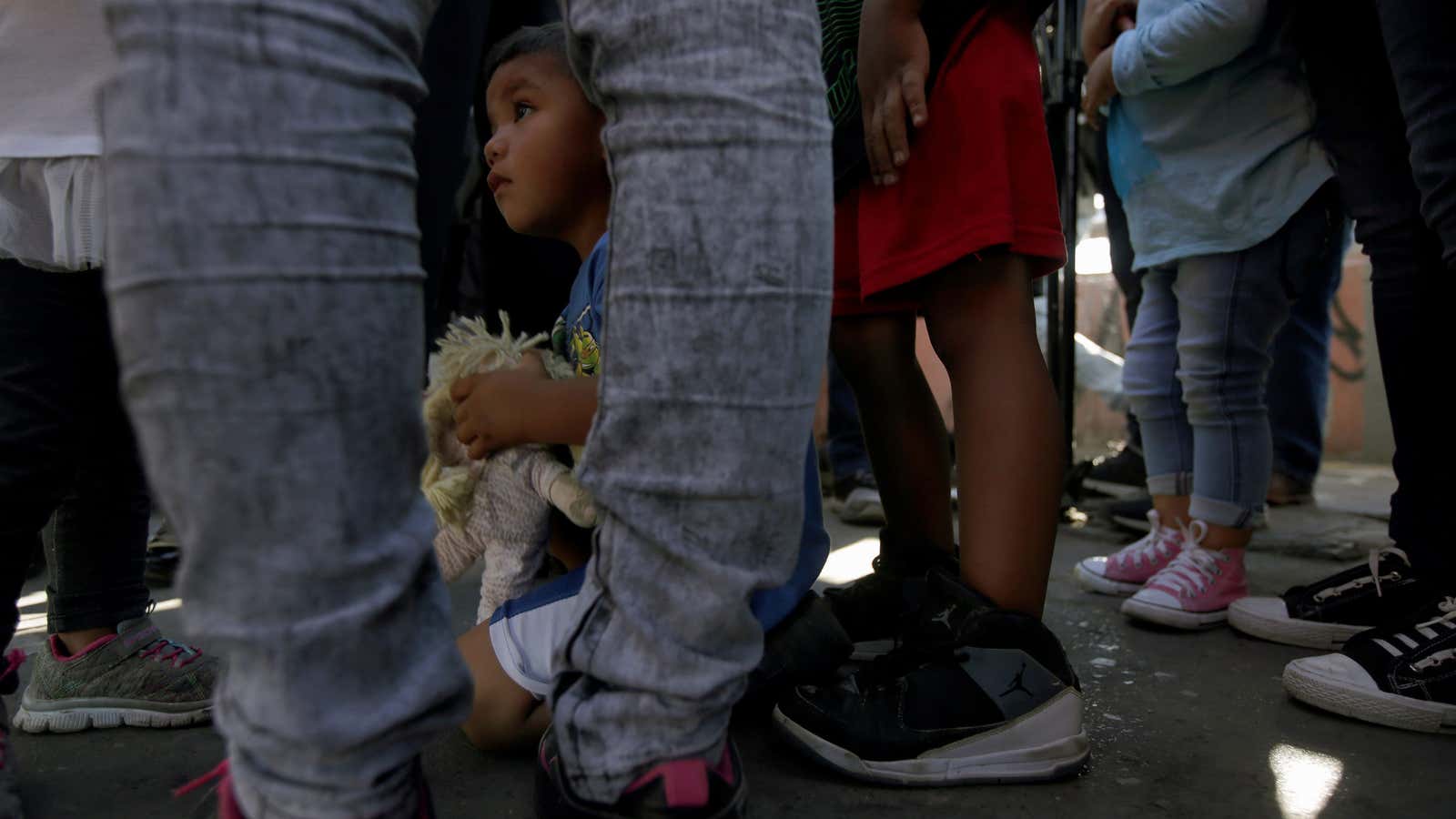Donald Trump has said he has no option but to lock up immigrant families to enforce immigration law. That’s a revision of his previous claim that he had no option but to separate kids from their parents.
But there is an alternative that is cheaper than either of those options—and effective. It’s known as the Family Case Management Program (FCMP,) which was introduced by the Obama administration in 2016 and abruptly ended by the Trump administration last year.
FCMP allowed immigrants with pending court cases to go free, but paired them with social workers who offered legal guidance and ensured the immigrants showed up to their hearings. It had an impressive success rate. All of the participants kept their court appointments, and 99% made it to their check-ins with immigration authorities, according to a 2017 audit by the Office of the Inspector General. Only 2% of the roughly one thousand participants fled.
Its price tag is $36 a day, according to the AP—significantly lower than what it costs to house immigrants families together or separately. A night at the “tent city” for children erected near the border is more than $700 per person; the cost of a bed at a family detention facility is about $318, according to Homeland Security’s 2019 budget proposal.
Unlike any detention involving children, FCMP wasn’t at odds with the Flores agreement, a 1997 court settlement that states children can’t be locked up for long periods of time.
Even the contractor that ran it, GEO Group, which stood to make more money from family detention, had good things to say about the program. ”The families have thrived,” wrote a company executive in a letter announcing the end of the program.
FCMP, however, wasn’t as effective as other programs in deporting people, an Immigrations and Customs Enforcement spokesperson said when it was cancelled. That means the chances of the Trump administration bringing it back are slim.
